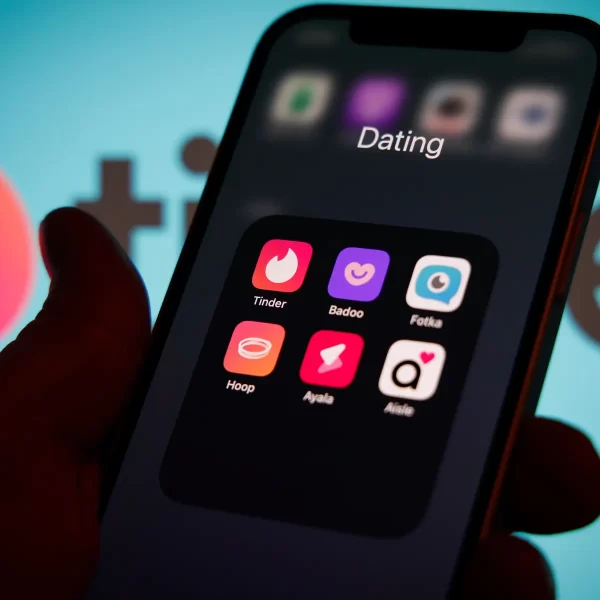The Tinder Swindler
Internet catfishing events catch public attention
Shimon Hayut being expelled from Greece in 2019.
February 16, 2023
“Stranger danger” is a common saying parents often tell their children when they are old enough to talk and meet new people. Recently, this value has been more important than ever, as more and more people are connecting online, through social media apps like Snapchat, Instagram and Tinder. An internet user can now meet someone from across the world online, and start a relationship with them without ever meeting in real life. This can be exciting and beneficial, but it can also be very dangerous, which the world saw in the case of the “Tinder Swindler.”
Shimon Yehuda Hayut was born in Israel on Sept. 27, 1990. He moved to Brooklyn, N.Y., when he was 15 years old, and began committing minor cons throughout his teenage years. Hayut later changed his name to Simon Leviev, using the surname Leviev to trick people into thinking he was the son of wealthy Israeli businessman Lev Avnerovich Leviev, who earned the nickname “The King of Diamonds” for his prosperous trade in the diamond business.
Leviev then moved to Europe, and began using the popular dating app Tinder to trick women into giving him money. He would charm women with lavish gifts, dinners on private jets and exotic trips around the world, using funds from his previous cons to fund his wealthy lifestyle. Leviev used emotional manipulation to make these women fall in love with him, and then ask for money to flee his fake father’s “enemies” from the diamond business. The story of the “Tinder Swindler” was made into a Netflix documentary in 2022, in order to raise awareness about internet catfishing and con artists.
Lillian Hanna (9) watched the documentary after some of her friends saw it and encouraged her to do so as well.
“I think that people on the internet need to be more careful about who they are talking to and giving money to. I think that the “Tinder Swindler” was in the wrong, but I think the victims of him will now know the dangers of the internet and how deceiving it can be,” Hanna said.
While the “Tinder Swindler” is a very high-profile case about the dangers of internet relationships, unfortunately things like this happen everyday to people all over the world. Many people make a living off of tricking other people, and it is very hard to trace down these people, because they can create a new account or go off the grid.
Gabriel Gilstrap (11) is familiar of the “Tinder Swindler” case, and he is very careful to avoid unusual situations online.
“I know that internet catfishing is a phenomenon where an internet user will create a fake account posing as another person in order to gain contact to another person. I’ve been fortunate enough to not have an experience with internet catfishing, but I have seen instances of people online falling victim to catfishing,” Gilstrap said.
Micah Kennedy (11) has heard about internet catfishing, and he has friends who have experienced it.
“I know that it is often mentally-deranged people who will try and trick people online by using someone else’s identity for money or other purposes,” Kennedy said.




















